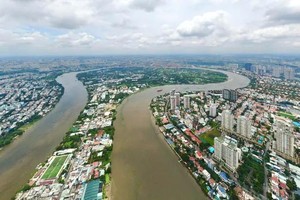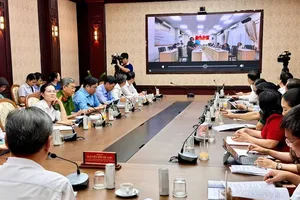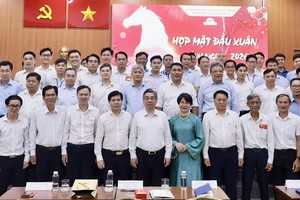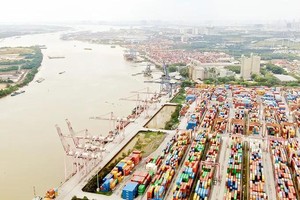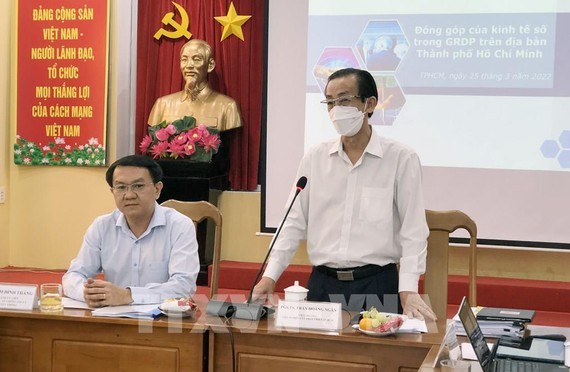 At the seminar (Photo: VNA)
At the seminar (Photo: VNA)
At the seminar named ‘Digital economy - Prospects and development orientations in Ho Chi Minh City’ organized by HIDS in collaboration with the Department of Information and Communications yesterday, many people think that the goal of Ho Chi Minh City by 2025, with the digital economy accounting for 25 percent, is achievable.
However, HIDS said it can only reach 14 percent or $8.27 billion; nevertheless, HIDS emphasized that this result is for reference only because there are many different approaches that will give different results.
The official number will be calculated and announced by the General Statistics Office of Vietnam. HIDS said that in 2022, Ho Chi Minh City will set out a digital economy plan to contribute 15 percent of GRDP. To achieve this goal, HIDS will focus on researching and proposing to develop the city into a financial technology hub (Fintech hub) and pilot policies (sandbox) on digital transformation and complete the Digital Transformation Support Center (DXCenter).
Because promoting digital transformation is one of the new growth engines for Ho Chi Minh City after the pandemic, the city needs to have specific policies to support businesses in digital transformation. However, policies to support businesses must come from the practical needs of businesses, from infrastructure enterprises, service providers, digital technology or digital content services.
According to experts, the digital economy is a new category in which concepts and scope need to be unified while measurement and statistical methods are still being tested and legal and policy frameworks continue to shape up to meet real development and management needs.
Lam Dinh Thang, Director of the Department of Information and Communications of Ho Chi Minh City also said that Ho Chi Minh City has a lot of potentials to develop the digital economy and achieve these goals because the city has the highest number of people using smartphones in the country.
Additionally, fiber optic infrastructure, broadband Internet, 3G and 4G mobile infrastructure cover all city’s districts and wards. There has been an increasing trend of digitizing, working, and learning remotely in the city. Technology applications serving people's lives in many fields are developed rapidly.
In 2021, because of the impact of the pandemic, many traditional service industries had a reduced growth rate whereas the science and technology industry posted a growth rate of 3.8 percent and the information-communication industry increased by 6.08 percent over the same period in the previous year. The pandemic has had a great impact on the socio-economic and people's lives, but it is a boost to e-commerce, remote learning, online working and digital transformation in general, said Mr. Lam Dinh Thang.
The Digital Transformation Program of Ho Chi Minh City, issued under the municipal People's Committee’s Decision No. 2393/QD-UBND dated July 13, 2020, proposes specific goals by 2025, the digital economy will account for 25 percent and by 2030, 40 percent of GRDP. The city has identified to place priority on digital transformation industries and proposed groups of tasks to promote the development of the digital economy.
Following the direction of the City People's Committee, over the past time, HIDS and the Department of Information and Communications, the standing agency of the City's Digital Transformation Program have coordinated to determine the index of the contribution of the digital economy to the GRDP of Ho Chi Minh City.
This is the first time that Ho Chi Minh City has determined the index of the contribution of the digital economy to the city's GRDP from the perspective of scientific research; thereby, based on it, the city will formulate basic policies to develop the city's digital economy.



